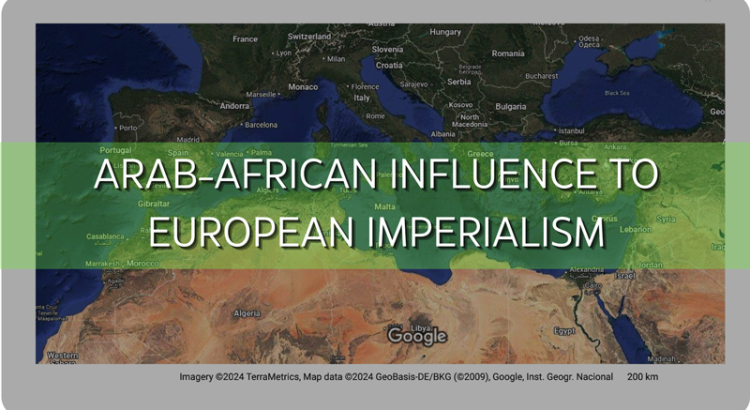Globalization, in its modern sense, refers to the increasing interconnectedness and interdependence of countries, cultures, and economies worldwide. This phenomenon is often traced back to the 15th century with the Age of Exploration, when European powers began to expand their influence across continents through trade, colonization, and military conquests. However, the roots of globalization can be traced back further, specifically to the 8th century, when Arab-Moorish forces exerted control over the Iberian Peninsula, laying the groundwork for later developments in global exchange.
Arab-Moorish Influence in Iberia
From the early 8th century until the Reconquista in 1492, much of the Iberian Peninsula (modern-day Spain and Portugal) was under the control of Muslim forces, known as the Moors, who were primarily of Arab and Berber (African) origin. During this period, the region flourished as a center of learning, trade, and cultural exchange. The Moors brought advanced knowledge in mathematics, medicine, astronomy, and architecture, which influenced both Iberia and the broader European context. Cities like Córdoba and Toledo became renowned for their intellectual contributions, and the region was a vital trade hub connecting Europe to the Muslim world and beyond.
This era of Arab-Moorish dominance was critical for the development of Europe’s intellectual and technological foundation. The exchange of knowledge and goods between Christian, Muslim, and Jewish communities during this time set the stage for Europe’s later advancements in navigation, science, and technology. Moreover, Arab merchants played a significant role in the trans-Saharan and Indian Ocean trade routes, linking Africa, the Middle East, and Asia. However, as Europe emerged from the Middle Ages and the Christian Reconquista succeeded in reclaiming Iberia from Muslim control, a new chapter of global expansion began.
Portuguese and Dutch Expansion
With the Reconquista complete, Portugal became one of the first European powers to embark on a path of global exploration. Spurred by their desire for wealth, territory, and Christian evangelism, the Portuguese ventured along the coast of Africa, establishing trade posts and asserting their dominance in regions like Angola and the Indian Ocean. They disrupted existing Arab trade networks, particularly in the East African coast and the Indian Ocean, where Arab merchants had long controlled the spice and gold trade routes.
By the 16th century, the Dutch followed the Portuguese in global exploration and trade, particularly focusing on Indonesia and the lucrative spice trade. Like the Portuguese, the Dutch leveraged advanced maritime technology and military prowess to establish a global presence. Their establishment of the Dutch East India Company (VOC) in 1602 marked the rise of one of the world’s first multinational corporations, cementing Dutch dominance in Asian trade. In essence, Portugal and the Netherlands helped pioneer early globalization through the establishment of far-reaching trade networks, the colonization of foreign lands, and the exploitation of local populations for economic gain.
The Shift in Global Power
The entry of Portugal and the Dutch into global exploration shifted the balance of power away from Arab dominance in trade, especially in the Indian Ocean. European powers, with their advanced shipbuilding, navigational technologies, and military capabilities, disrupted centuries-old Arab trade routes and established direct control over much of the global economy. This shift was significant as it allowed European powers to dominate key regions and trade routes, ushering in an era of European imperialism.
The eventual rise of more powerful European empires, such as Spain, Britain, and France, further entrenched European dominance globally. The competition for overseas colonies intensified, and the race for global hegemony saw the marginalization of other trading empires, including the Arab and Ottoman spheres. Portugal and the Dutch may have been the early pioneers, but they paved the way for the larger European powers that would later reshape global politics, economics, and society.
Legacy of Globalization
The globalization that began in the 15th century, spearheaded by Portugal and the Dutch, had both positive and negative consequences. On the one hand, it facilitated the exchange of goods, cultures, and ideas, leading to technological advancements and the spread of religions like Christianity in Africa and Asia. On the other hand, it resulted in significant exploitation, the transatlantic slave trade, and the colonization of vast regions, which had devastating consequences for indigenous populations.
The Arab-Moorish influence on Iberia in earlier centuries, however, played a key role in laying the intellectual and technological foundations that would allow Europe to excel in global exploration. Moreover, the displacement of Arab dominance by European powers in global trade was one of the critical turning points in history that shaped the modern world.
